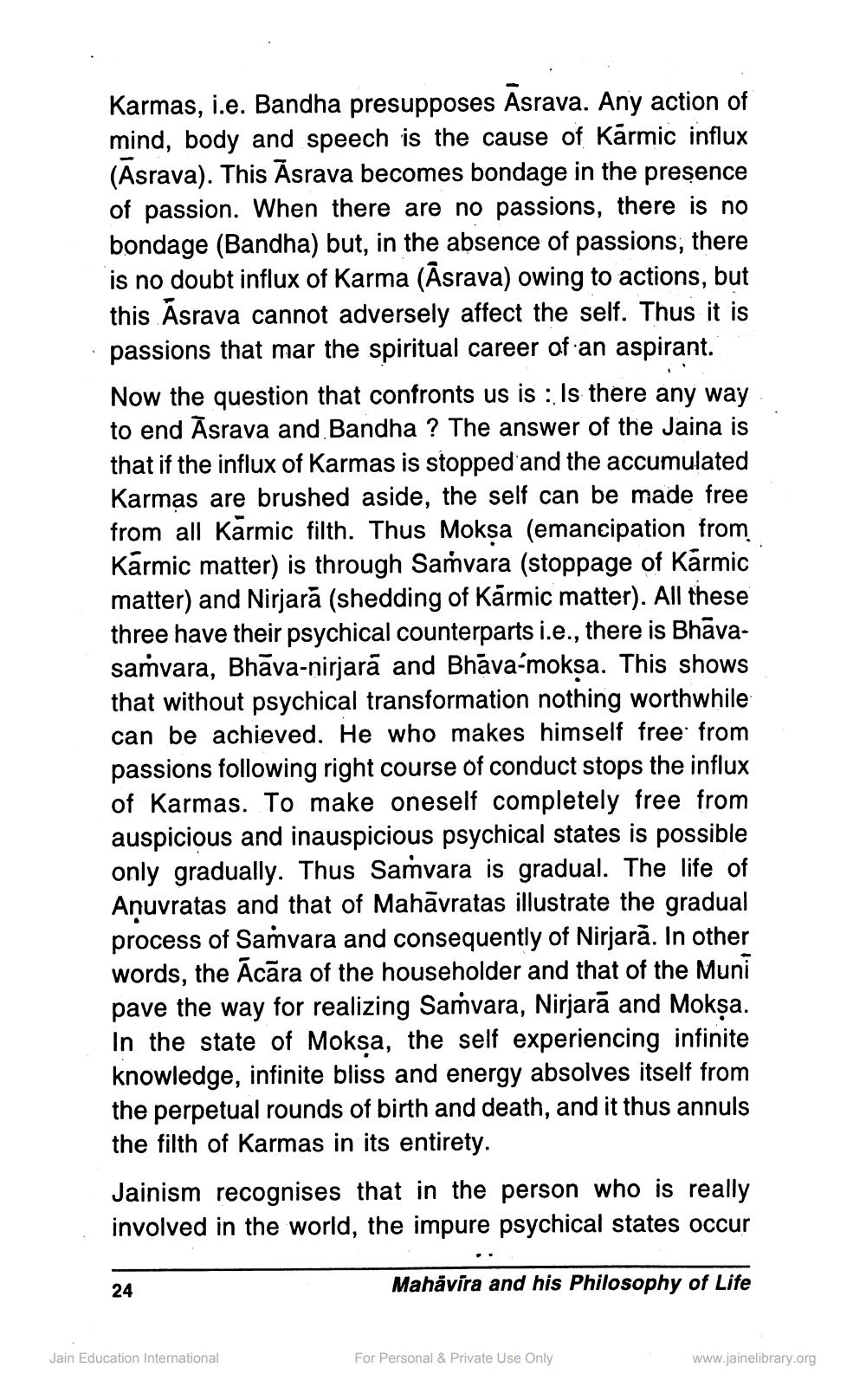________________
Karmas, i.e. Bandha presupposes Asrava. Any action of mind, body and speech is the cause of Karmic influx (Asrava). This Āsrava becomes bondage in the presence of passion. When there are no passions, there is no bondage (Bandha) but, in the absence of passions, there is no doubt influx of Karma (Asrava) owing to actions, but this Asrava cannot adversely affect the self. Thus it is passions that mar the spiritual career of an aspirant.
Now the question that confronts us is: Is there any way to end Asrava and Bandha ? The answer of the Jaina is that if the influx of Karmas is stopped and the accumulated Karmas are brushed aside, the self can be made free from all Karmic filth. Thus Moksa (emancipation from Karmic matter) is through Samvara (stoppage of Karmic matter) and Nirjarā (shedding of Karmic matter). All these three have their psychical counterparts i.e., there is Bhāvasamvara, Bhāva-nirjarā and Bhāva-mokṣa. This shows that without psychical transformation nothing worthwhile can be achieved. He who makes himself free from passions following right course of conduct stops the influx of Karmas. To make oneself completely free from auspicious and inauspicious psychical states is possible only gradually. Thus Samvara is gradual. The life of Anuvratas and that of Mahāvratas illustrate the gradual process of Samvara and consequently of Nirjarà. In other words, the Acara of the householder and that of the Muni pave the way for realizing Samvara, Nirjarā and Mokṣa. In the state of Moksa, the self experiencing infinite knowledge, infinite bliss and energy absolves itself from the perpetual rounds of birth and death, and it thus annuls the filth of Karmas in its entirety.
Jainism recognises that in the person who is really involved in the world, the impure psychical states occur
Mahavira and his Philosophy of Life
24
Jain Education International
For Personal & Private Use Only
www.jainelibrary.org




